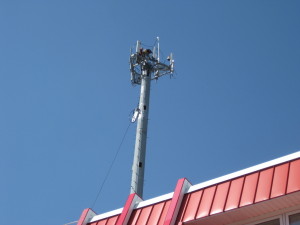
Here we go again. Below are the latest bills filed by the Florida Legislature that impact homeowner and condominium associations. The official bill summaries below are from the respective legislature sponsors of each bill. However, if you read the actual text of the proposed bills you will notice many other significant legislative changes affecting both homeowner and condominium associations that are not contained in the official summaries.
Updated as of April 15, 2015
The horrific bill that attempted to “condoize” Florida’s homeowner associations has failed. Florida House Bill 1263 failed to get to a committee and cannot become law this year. Nevertheless, this is the second year in a row this bill has failed so a regurgitation for another attempt at passage in the future is likely.
HB 791: Residential Properties.****
April 13, 2015, Bill passes Finance Committee
Amends the definition of “developer” to exclude certain owners who own small numbers of condominium units and certain timeshare trustees;
* Regulates the order of application of payments received by a condominium or cooperative association for past due assessments;
* Revises provisions related to fines and penalties assessed by associations;
* Provides that a homeowners’ association may only levy fines up to $100, unless otherwise provided in the association’s governing documents;
* Provides that a homeowners’ association member that fails to pay a fine may be suspended from the board of directors or barred from running for the board;
* Provides that a homeowners’ association’s failure to provide notice of the recording of an amendment does not affect the validity or enforceability of the amendment;
* Authorizes non-profit corporation proxy voting based on a reproduction of the original proxy;
* Updates the definition of “governing documents” for homeowners’ associations to include the rules and regulations that have been adopted by the association; and
* Extends the time limitation for classification as bulk assignee or bulk buyer under the Distressed Condominium Relief Act until July 1, 2018 from July 1, 2016.
See full analysis here
CS/CS/HB 791 – Residential Properties
GENERAL BILL by Moraitis
Residential Properties; Provides that certain deed, transfer, or conveyance from owner of property is subject to certain taxes; authorizes use of copy, facsimile transmission, or other reliable reproduction of original proxy vote for certain purposes; revises & provides provisions relating to condominiums, including liability, official records of association, board of administration & unit owner meetings, voting process for providing reserves, liability of unit owners & mortgagees, claim of liens, bulk-unit purchasers, fines & suspensions; repeals provisions relating to Distressed Condominium Relief Act; revises & provides provisions relating to cooperatives, including official records of association, board of administration & shareholder meetings, applicability, claim of liens, fines & suspensions; revises & provides provisions relating to homeowners’ associations, including fines & suspensions, application, adoption of amendments to governing documents, & election of directors.
Full bill text here.
HB 611: Residential Properties
| General Bill by: Civil Justice Subcommittee and Wood (CO-SPONSORS) Artiles; Eagle; Edwards; Mayfield; Raburn; Spano |
Residential Properties: Provides requirements relating to request for estoppel certificate by unit or parcel owner or unit or parcel mortgagee; provides that association waives right to collect any moneys owed in excess of amounts set forth in estoppel certificate under certain conditions; provides that association waives any claim against person or entity who would have relied in good faith upon estoppel certificate under certain conditions; provides & revises estoppel certificate fee & supplemental fee requirements; repeals provisions regarding expedited court action to compel issuance of estoppel certificate. Despite allowing foreclosing lenders to live for free on the backs of every other homeowner association member by severely limiting the past due assessments a foreclosing lender that retained title has to pay (1% of the mortgage or 12 months), the Florida legislature is back for more. In case you missed it, proposed Bill HB 611 penalizes community associations that do not timely issue proper estoppel certificates by eliminating any amount not placed on the estoppel letter and timely delivered to the requester.Full bill text here.
March 27, 2015: The Senate version of the estoppel bill did not pass any committees and the House Bill 611 got two no votes in committee. It is unlikely these community association damaging bills will pass. |
SB 748: Residential Properties
GENERAL BILL by Ring
Residential Properties; Providing that any copy, facsimile, or other reliable reproduction of the original proxy may be substituted and used in lieu of, and for the same purposes as, the original proxy if the reproduction is a complete reproduction of the entire proxy; providing that the association may recover from the unit owner or parcel owner a reasonable charge imposed by a management or bookkeeping company, or collection agent, incurred in connection with a delinquent assessment, etc.
Full bill text here.




